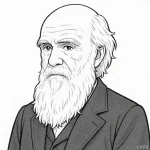“If man could be crossed with the cat it would improve man, but deteriorate the cat.”

- November 30, 1835 – April 21, 1910
- American
- Author, humorist, and lecturer
table of contents
Quote
“If man could be crossed with the cat it would improve man, but deteriorate the cat.”
Explanation
Mark Twain’s quote humorously suggests that while man could stand to gain from the qualities of a cat, such as its independence, grace, and self-sufficiency, the cat would be negatively affected by the introduction of human traits, which he implies are less desirable. Twain is commenting on the idea that humans have many flaws—such as overthinking, ego, and dependence on society—that would only diminish the cat’s natural freedom and dignity. The cat, in contrast, is often seen as the epitome of self-reliance and mystique, qualities that would be corrupted if it were to inherit human attributes.
Twain’s satirical wit is aimed at human nature, highlighting how self-awareness and societal engagement—traits that define humans—can often lead to complicated emotions and behaviors that detract from the simplicity and grace found in nature. The cat symbolizes an ideal state of being, free from the distractions of human life and its complexities, while humans could certainly benefit from adopting more of the cat’s qualities, like quiet self-possession and independence.
In modern contexts, this quote speaks to the ongoing tension between nature and society. While humans often admire the effortlessness and independence of animals like cats, we also recognize that the complicated nature of human existence—driven by intellect, socialization, and constant striving—makes it difficult to truly achieve the peace and self-sufficiency that animals seem to embody. Twain’s humor suggests that in an attempt to bring the best of both worlds together, the human side would likely improve, while the natural grace of the animal would be compromised. It’s a reflection on how, in our quest for improvement, we often sacrifice the very things that make nature and simplicity appealing.
Would you like to share your impressions or related stories about this quote in the comments section?


